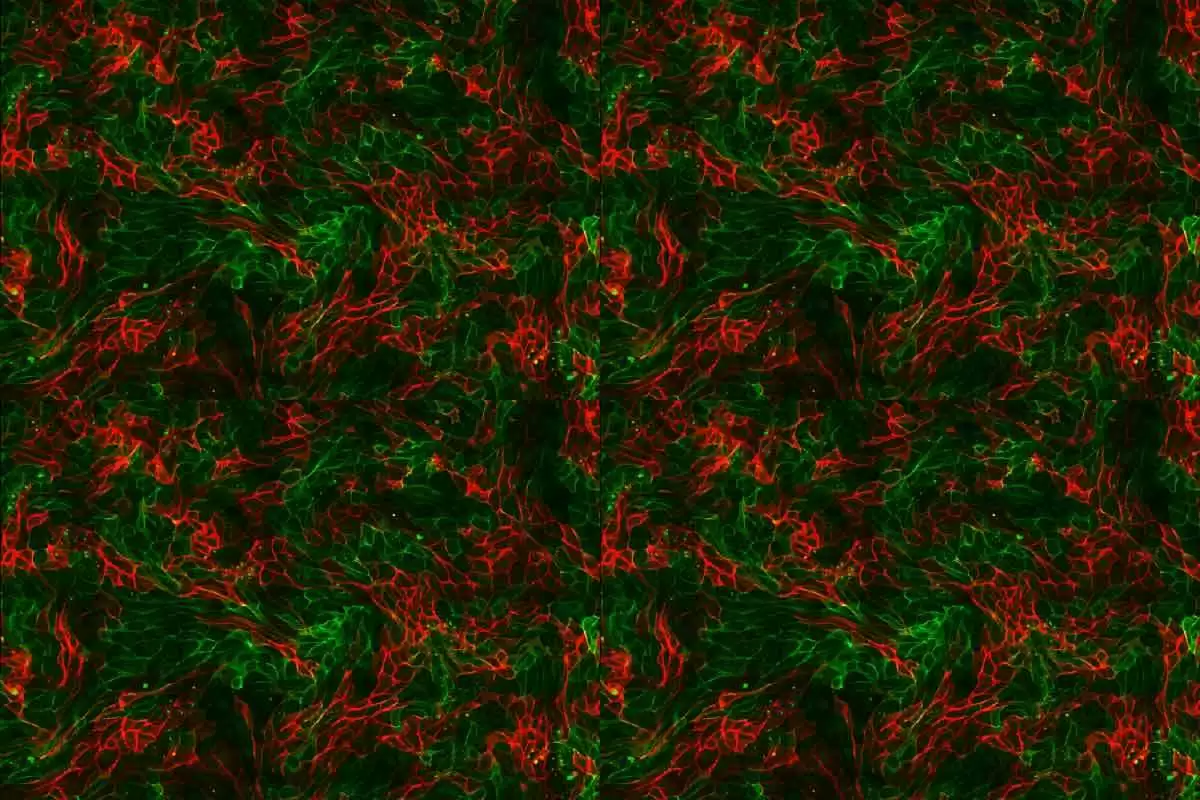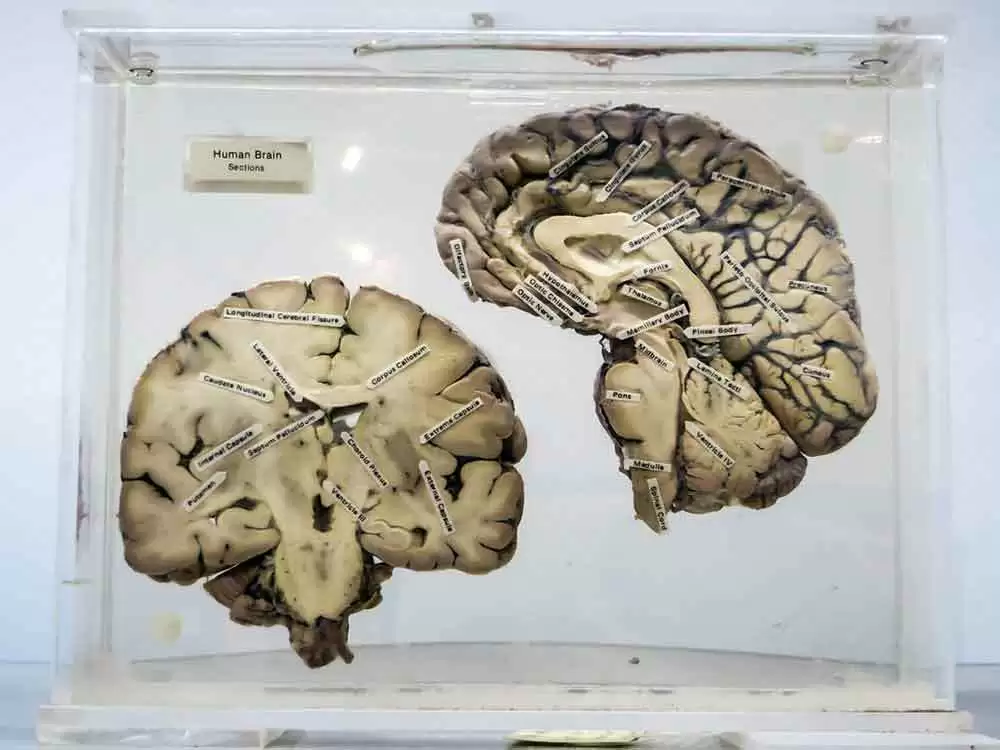-
Welcome to Celiac.com!
You have found your celiac tribe! Join us and ask questions in our forum, share your story, and connect with others.
-
Celiac.com Sponsor (A1):
Celiac.com Sponsor (A1-M):
-
Get Celiac.com Updates:Support Celiac.com!
Search the Community
Showing results for tags 'transglutaminase'.
-
Anyone could give me some insight?? Thank you 😎👉 https://www.dropbox.com/s/c9umo7yxg0el72g/2022-05-31 22.14.50.jpg?dl=0
-
Celiac.com 10/19/2021 - There is some data to indicate a connection between celiac disease and IgA nephropathy (IgAN). In celiac disease IgA-class tissue transglutaminase (tTG) autoantibodies are seen in the small bowel mucosa and extraintestinal organs, in addition to circulating in serum. A team of researchers recently studied whether celiac disease-type IgA-tTG deposits occur in kidney biopsies in a case series of IgAN patients with or without celiac disease. The research team included Rakel Nurmi, Ilma Korponay-Szabó, Kaija Laurila, Heini Huhtala, Onni Niemelä, Jukka Mustonen, Satu Mäkelä, Katri Kaukinen, and Katri Lindfors. They are variously affiliated with the Celiac Disease Research Center, Faculty of Medicine and Health Technology, Tampere University in Tampere, Finland; the Celiac Disease Center, Heim Pál National Pediatric Institute in Budapest, Hungary; the Department of Pediatrics, Faculty of Medicine and Clinical Center, University of Debrecen in Debrecen, Hungary; the Faculty of Social Sciences, Tampere University in Tampere, Finland; the Medical Research Unit, Seinäjoki Central Hospital in Seinäjoki, Finland; and the Department of Internal Medicine, Tampere University Hospital in Tampere, Finland The team looked at nine IgAN patients, four of whom had celiac disease. The team measured serum tTG autoantibodies at the time of the diagnostic kidney biopsy, and looked at colocalization of IgA and tTG in the frozen kidney biopsies. The results showed IgA-tTG deposits in the kidneys of three IgAN patients with celiac disease though two patients had been diagnosed with celiac disease years later. They fund no deposits in a known celiac disease patient who was following a gluten-free diet. Of the five non-celiac IgAN patients, three showed IgA-tTG deposits in their kidneys. From their small study, the team concludes that tTG-targeted IgA deposits can be found in the kidney biopsies of gluten-consuming IgAN patients, but they likely won't be much help in spotting celiac disease, due to limited specificity. Read more in Nutrients
-
Hi everyone, It all started with me having the covid 19 virus, after one week after the virus I started having gut issues like mucus in stool and some diarrea plus normal stomach flu like symptoms. (all these symrpms lasted for a week and a half, then went away on there own) Went to the doctor anyway cause I just wanted to check what was up with the mucus and maybe it was some bacteria causing this, and I thought he would prescribe me some antibiotics. Insted he tested my blood and one of the tests, the transglutaminase Iga showed positive, 24,6 when max should be is 15! I was in shock to say the least when I read this could be celiac cause I never had any issues with gluten or any symptoms. I got the biopsy done this week and waiting for the results, he said everything looked normal during endoscopy, I know it's not conclusive and I gave to wait for the biopsy results. My question is, could this small transglutaminase iga alteration be caused by this gut infection post covid, I suffered quite a lot during my covid disease too! Or is this celiac caught by extreme coincidence, even though I feel absolutely perfect and my iron and all vitamins are all normal! Best regards and thanks for your responses, Kasia
- 12 replies
-
- celiac disease
- covid-19
-
(and 1 more)
Tagged with:
-
Celiac.com 01/10/2019 - Microbial transglutaminase is an enzyme that is commonly used by food manufacturers to improve product quality and increase shelf life. Transglutaminase is commonly used in the meat industry to add value to meat by allowing smaller pieces of meat, fish, or meat product to be glued together. The result is a large chunk of virtually intact piece of meat or fish that looks like a single chunk. Transglutaminase is rarely labeled and usually invisible to consumers. According to the food website, Delishably, “"Meat glue" is industry standard, and chances are if you eat meat, or even tofu, you're consuming this binding agent on a monthly, if not weekly, basis.” Because it is functionally similar to the tTg, microbial transglutaminase acts like glue, binding gliadin peptides together to form neo-complexes that trigger an immune response, and may also trigger a pathogenic response in people with celiac disease. Even when it lacks sequence identity, microbial transglutaminase functionally mimics endogenous tissue transglutaminase, which researchers understand to be an autoantigen of celiac disease and a key actor in genesis and progression of celiac disease. A team of researchers recently set out to review the effects of microbial transglutaminase in children with celiac disease. Researchers Matthias Torsten and Lerner Aaron are affiliated with AESKU, KIPP Institute, Wendelsheim, Germany, and the Rappaport School of Medicine at the Technion-Israel Institute of Technology in Haifa, Israel. In their review, they report on the enzyme’s characteristics, exogenous intestinal sources, its ability to cross-link to gluten or gliadin, and to thus turn seemingly harmless proteins into disease triggering ones. Their report relays several observations about the immunogenicity of microbial transglutaminase cross-linked complexes in celiac patients, as well as summarizing their pathogenicity, and highlighting possible risks for the gluten dependent conditions. Their stated hope is to promote additional research into the mechanics and disease-triggering channels underlying the gliadin cross linked enzyme and its promotion of celiac disease. The team anticipates that corroboration of their observations could reveal a new environmental trigger for the initiation of celiac disease. They are calling for further study, particularly of the physical mechanics of the process. The team’s research could lead to new understandings of the genesis of celiac disease in certain patients. Such a development would be very helpful to celiac disease research and understanding, in general, and could lead to new diagnosis and treatment options in the future. Sources: Front. Pediatr., 11 December 2018 | https://doi.org/10.3389/fped.2018.00389 Sciencedirect.com
-
Celiac.com 05/09/2013 - Previous studies have shown an immunologic response primarily directed against transglutaminase (TG)6 in patients with gluten ataxia (GA). A team of researchers set out to see if Transglutaminase 6 antibodies could be helpful in the diagnosis of gluten ataxia. The team included M. Hadjivassiliou, P. Aeschlimann, D.S. Sanders, M. Mäki, K. Kaukinen, R.A. Grünewald, O. Bandmann, N. Woodroofe, G. Haddock, and D.P. Aeschlimann. They are variously affiliated with the Departments of Neurology (M.H., R.A.G., O.B.) and Gastroenterology (D.S.S.) at Royal Hallamshire Hospital in Sheffield, UK, the Matrix Biology & Tissue Repair Research Unit (P.A., D.P.A.) of the School of Dentistry at Cardiff University in Cardiff, UK, the Department of Paediatrics (M.M., K.K.) of the School of Medicine at University of Tampere in Finland, and the Department of Biological Sciences (N.W., G.H.) at Sheffield Hallam University in Sheffield, UK. For their prospective cohort study, the team looked at patients from the ataxia, gluten/neurology, celiac disease (celiac disease), and movement disorder clinics based at Royal Hallamshire Hospital (Sheffield, UK) and from the celiac disease clinic at Tampere University Hospital in Tampere, Finland. Patients were broken into groups that included idiopathic sporadic ataxia, gluten ataxia, celiac disease, and neurology, along with healthy control subjects. The team screened all subjects for TG6 antibodies, and conducted duodenal biopsies on all patients with positive blood screens. In addition, they analyzed biopsies from 15 consecutive patients with idiopathic sporadic ataxia and negative serology for gluten-related disorders for immunoglobulin A deposits against TG. They found TG6 antibodies in 21 of 65 (32%) patients with idiopathic sporadic ataxia, in 35 of 48 (73%) patients with GA, in 16 of 50 (32%) patients with celiac disease, in 4 of 82 (5%) neurological control subjects, and in just 2 of 57 (4%) healthy control subjects. The results showed that forty-two percent of patients with GA had enteropathy, as did 51% of patients with ataxia and TG6 antibodies. Five of 15 consecutive patients with idiopathic sporadic ataxia had immunoglobulin A deposits against TG2, 4 of which subsequently tested positive for TG6 antibodies. Follow-up screens showed that one year of gluten-free diet left TG6 antibody levels greatly reduced or undetectable. The study shows that antibodies against TG6 are gluten-dependent and that they seem to be a sensitive and specific indicator of gluten ataxia. Source: Neurology. 2013 Apr 10.
-
- antibodies
- ataxia
-
(and 3 more)
Tagged with:
-
Celiac.com 08/21/2019 - Celiac disease is an autoimmune disorder triggered by gluten consumption. Celiac disease affects about 1% of the population and is often marked by gastrointestinal symptoms, weight loss, and anemia. A team of researchers recently set out to evaluate the presence of neurologic deficits and determine whether the presence of antibodies to Transglutaminase 6 (TG6) increases the risk of neurologic defects in newly diagnosed celiac disease patients. The research team included Marios Hadjivassiliou; Iain D.Croall; Panagiotis Zis; Ptolemaios G. Sarrigiannis; David S. Sanders; Pascale Aeschlimann; Richard A. Grünewald; Paul A. Armitage; Daniel Connolly; Daniel Aeschlimann; and Nigel Hoggard. They are variously affiliated with the Academic Department of Neurosciences, Sheffield Teaching Hospitals NHS Trust, Sheffield, United Kingdom; the Department of Gastroenterology, Sheffield Teaching Hospitals NHS Trust, Sheffield, United Kingdom; the Department of Neuroradiology, Sheffield Teaching Hospitals National Health Service Trust, Sheffield, United Kingdom; and the Matrix Biology and Tissue Repair Research Unit, College of Biomedical and Life Sciences, School of Dentistry, Cardiff University, Cardiff, United Kingdom. The research team conducted a prospective cohort study of 100 consecutive patients newly diagnosed with celiac disease, based on gastroscopy and duodenal biopsy, at a secondary-care gastroenterology center. The team collected data on neurologic history, and assessed patients by clinical exams, magnetic resonance imaging of the brain, magnetic resonance (MR) spectroscopy of the cerebellum, and measurements of antibodies against TG6 in serum samples. The first 52 patients received repeat MR spectroscopy at 1 year after a gluten-free diet. The main goal was to determine if antibodies against TG6 can be used to identify patients with celiac disease and neurologic dysfunction. The team found gait instability in about 1 in four of the patients, persisting sensory symptoms in 12%, and frequent headaches in 42%. They also found gait ataxia in 29% of patients. Sixty percent of patients had abnormal results from magnetic resonance imaging, while 47% had abnormal results from MR spectroscopy of the cerebellum, and 25% had brain white matter lesions beyond those expected for their age group. Patients with abnormal MR spectroscopy of the cerebellum showed improved results after 1-year on a gluten-free diet. This study showed that neurologic deficits were common in people newly diagnosed celiac disease, and that 40% of those patients had circulating antibodies against TG6. The team found a significant reduction in volume of specific brain regions in patients with TG6 autoantibodies, providing evidence for a link between autoimmunity to TG6 and brain atrophy in patients with celiac disease. The results of this study emphasize the need for early diagnosis, better clinical awareness of the neurologic aspects of celiac disease, and the promotion of a strict gluten-free diet so that patients can avoid permanent neurologic damage. Read more in Clinical Gastroenterology and Hepatology
- 1 comment
-
- celiac disease
- defects
-
(and 4 more)
Tagged with:
-
I had a rant here about 3 months ago after I received the results of my own biopsy, and was advised to go gluten free anyway, which I still haven't done but I'm experimenting with foods and hope to be gluten free soon. I wanted to come here and ask your advice again, because my dad had a biopsy about 4 weeks ago, the results of which came today, and I am so surprised to read they're negative. They told him it was very likely that he had celiac because his blood test was transglutaminase positive. He has low iron, low vitamin D, reflux, and his long-term symptoms of M.E/Chronic Fatigue Syndrome which I know are also common symptoms of celiac. Everyone was sure he might have it, so I don't understand why his biopsy was "normal with no evidence" of the disease. The letter does however suggest further blood tests to see if he might develop celiac disease in the future. If his immune system is attacking and it's showing in his blood, doesn't that mean he's already developed it? Why would it do that if he didn't have celiac going on now? I've been encouraging him to try gluten free bread and biscuits but he's been reluctant, now he definitely won't. Should he? Or should he wave the whole thing off and continue eating his sandwiches like he did quite happily today? I guess they will tell him at the appointment. It's just so ridiculous because after he eats wheat he gets reflux! I was also counting on his results being positive... Sorry I'm rehashing my story now, but since 2011 I've had severe, chronic reflux that has gotten worse with time and has remained a mystery after a barium, manometry and two endoscopies; IBS; light headedness/heavy/cotton wool head with brain fog; headaches and jaw pain; muscle pain and severe weakness; sensitivity to noise, light, and heat, also the sun; fatigue and crashing after activity; bone pain; also severe acne that only responds to antibiotics; dry and flaky skin; brittle, cracked and peeling nails; year-round allergies, like having a mild cold permanently; and the occasional mouth ulcer and bleeding gums. The absolute worst is the reflux, followed by the IBS and then my head. I haven't been able to spin in a circle for years. I can't dance. Can't exercise. I feel so dizzy and sick all the time. Can't bend over or lie down with the reflux. Have cut out all acidic foods and FODMAPS. I am underweight. The reflux doesn't allow me to drink much water now because it feels like I have a little ocean of acid/bile sitting in my esophagus and drinking just adds more to it. So my throat has been so dry for months now. Barium and endoscopy both showed acid/bile sitting there, and a hernia. Manometry presumably showed no reason for reflux like a problem with the wave or a loose LES. But my blood work was negative and then my biopsy was negative. I cried on my friend's shoulder when I got that letter, and I've been counting on dad's results since. Now... Now what? I haven't heard from the hospital in 3 months, since my results came back. I don't know if they're waiting to figure out my father before figuring out me, or if they've discarded me. They told me I'm difficult. So I'm looking for gluten free foods but it's difficult without medical support, and being the only one in the house that wants to be gluten free, cross contamination is going to be a constant threat. Just persuading them to have a second toaster is a battle in itself. (Gluten free pancakes are all very well, but not if I put them in that toaster!) Honestly, I'm at my wits' end. I haven't been healthy since 2011. I'm only 28. I don't remember what it feels like to not have reflux, acid, bile; to eat anything with no pain or gas or toilet trips; to spin in a circle or go to amusement parks; what it feels like to have a clear head. I avoid sunny days. This was all triggered and set off at the end of 2011 by panic attacks and a hospital stay. Oh, I forgot to mention that my stools are often pale, like beech furniture (that might be a strange comparison!). I've really just... had it. So I'm not really sure what I'm asking... should we both go gluten free despite negative biopsies? Or might we just have M.E/Chronic Fatigue Syndrome, which my dad was diagnosed with 18 years ago? Thank you for reading!!
- 6 replies
-
- biopsy
- chronic fatigue syndrome
-
(and 3 more)
Tagged with:
-
I don't know how to interpret these lab results and my doctor isn't available for a few days to call. Anybody know what this means? Test Result Flag Reference Range Immunoglobulin A, Qn, Serum 78 L 91-414 t-Transglutaminase (tTG) IgA >100 H 0-3 Negative 0-3 Weak Positive 4-10 Positive >10 Tissue Transglutaminase (tTG) has been identified as the endomysial antigen. Studies have demonstrated that endomysial IgA antibodies have over 99% specificity for gluten sensitive enteropathy. Deaminated Gliadin Abs, IgA 53 H 0-19 Negative 0-19 Weak Positive 20-30 Moderate to Strong Positive >30
- 7 replies
-
- celiac disease panel
- gluten free
- (and 4 more)
-
I was diagnosed as Celiac in 2011 by a blood test that showed my transglutaminase levels were so high that the exceeded the measuring scale. I went on a gluten free diet and my levels started to come back down and a year later they reached 35. I have tested my levels over the last 5 years and it has not moved from 35!! I have read and reread all the food that I buy. Most processed ones are labelled as gluten free as well. I am not sure what I am doing wrong or if I should accept that is "my normal"?? Is that possible? Or should it return to normal???
- 4 replies
-
- normal
- strict diet
-
(and 1 more)
Tagged with:
-
Celiac.com 10/13/2017 - Tissue transglutaminase (tTG) immunoglobulin A (IgA) testing is a sensitive adjunct to the diagnosis of coeliac disease. The threshold for positivity was developed for diagnosis, with negative results reported as below the reference value (<4 U/mL). A team of researchers recently set out to investigate if an undetectable tissue transglutaminase IgA antibodies (tTG IgA<1.2 U/mL) is more predictive of healing compared to patients with negative but detectable serology (1.2-3.9 U/mL). The research team included H. Fang, K. S. King, J. J. Larson, M. R. Snyder, T. T. Wu, M. J. Gandhi, and J. A. Murray. They are variously affiliated with the Department of Medicine, the Division of Gastroenterology and Hepatology, the Division of Anatomic Pathology, the Division of Clinical Biochemistry and Immunology, the Division of Biomedical Statistics and Informatics, and the Division of Transfusion Medicine at the Mayo Clinic, Rochester, MN, USA. The research team conducted a retrospective study of 402 treated coeliac disease patients seen at the Mayo Clinic with negative tTG IgA values drawn within 1 month of duodenal biopsy between January 2009 and December 2015. The team used Corazza-Villanacci scores to assess mucosal healing, and logistic regression to assess the relationship of clinical variables with a normal biopsy. They also noted the presence of gastrointestinal symptoms. Their results showed that patients with undetectable test levels more frequently had normal duodenal histology, as compared with patients with detectable tTG IgA levels. Asymptomatic patients more often showed normal duodenal histology as compared to symptomatic patients. Patients with undetectable blood levels, and who followed a gluten-free diet for ≥2 years were more likely to have no villous atrophy, as compared to patients with detectable blood levels. Follow-up biopsies revealed that people recovering from celiac disease with negative tTG IgA serology showed that undetectable test levels are associated with normal histology. Source: AP&T
-
- antibodies
- celiac
- (and 11 more)
-
Celiac.com 06/29/2012 - A group of researchers recently set out to study cases of positive tissue transglutaminase antibodies with negative endomysial antibodies to determine whether or not such cases amount to celiac disease. The team included Thomas Hornung; Pavel Gordins; Clare Parker; and Nicholas Thompson. They are variously affiliated with the departments of Gastroenterology, and Immunology at the Northern Deanery of Newcastle upon Tyne, and with the department of Gastroenterology at Freeman Hospital in Newcastle upon Tyne in the UK. The most sensitive and specific blood tests for diagnosing celiac disease are those that detect immunoglobulin A (IgA) antibodies against human tissue transglutaminase (tTGA) enzyme, and those that measure aspects of connective tissue covering individual smooth muscle fibers, endomysial antibodies (EMA). Because of the high sensitivity (up to 98%) and high specificity (around 96%) reported for the tTGA assay, detection of tTGA is currently the primary blood test used in screening for celiac disease. The tTGA test also has a high negative predictive value approaching 100%, which makes it an excellent test for excluding celiac disease in both high and low risk groups. In contrast, positive predictive value of the tTGA test is rather poor with values between 28.6% and 60.2% being reported in several studies. EMA, on the other hand, has extremely high specificity values close to 100% and positive predictive value values approaching 80%.[5 10] However, compared with tTGA, EMA has lower sensitivity, usually under 90%. This being the case, the present standard celiac disease screening strategy is to first use tTGA, and then confirm positive results using EMA. However, doing it this way, doctors often end up with a group of patients who show divergent test results. For their study, the researchers wanted to gauge the percentage of patients with positive tTGA and negative EMA, but who were confirmed with celiac disease upon biopsy, and to identify factors in these patients that may help to increase diagnostic accuracy in such patients. The research team identified 125 consecutive patients with positive tTGA and negative EMA, who subsequently underwent endoscopy with at least two biopsies from the second part of the duodenum. The team charted any tTGA result over 15 U/ml as positive. They excluded any patients with known celiac disease at the time of testing. They then reviewed patient notes to assess indications for celiac disease serological screening, including the presence of iron deficiency anaemia, and symptoms such as diarrhea or weight loss, and family history of celiac disease. They defined diarrhea as a bowel frequency of more than three times a day. They then assessed histological evidence of celiac disease based on subsequent duodenal biopsies, plus Marsh grading. In cases where patient histology was unclear, they relied on the clinical assessment of a consulting gastroenterologist. Unclear histology included minimal/mild increase in intraepithelial lymphocytes of not more than 30 per 100 enterocytes and without villous atrophy, plus mild villous blunting with no increase in intraepithelial lymphocytes. They then categorized patients as either celiac disease negative, or celiac disease positive. Patients with no histological evidence of celiac disease on duodenal biopsies or equivocal histology plus overall clinical impression of celiac disease absence were categorized as celiac disease negative. Patients with histological evidence of celiac disease on duodenal biopsies or equivocal histology plus overall clinical impression of celiac disease presence were categorized as celiac disease positive. To measure IgA anti-tTGA antibody the team used a commercially available enzyme linked immunosorbent assay called Aeskulisa, manufactured by Aesku Diagnostics GmbH in Wendelsheim, Germany. To detect IgA anti-EMA with the standard immunofluorescent method, they used commercial slides of monkey oesophagus sections (Euroimmun, Euroimmun AG, Lübeck, Germany). They used conjugated sheep antihuman IgA as a secondary antibody, relying on a test manufactured by Instrumentation Laboratory UK Ltd., in Warrington, UK. Overall, the team categorized 113 patients (90.4%) as celiac disease negative. Of these, 102 patients had no histological features of celiac disease, while 11 patients had unclear histology plus an overall clinical impression of not having celiac disease. They categorized twelve patients (9.6%) as celiac disease positive. Of these, 10 patients had positive histology, and two patients had unclear histology plus an overall clinical impression of having celiac disease. Of those with positive histology, 17% were Marsh grade I, 8% were Marsh grade II, 33% were Marsh grade IIIa, 17% were Marsh grade IIIb and 25% were Marsh grade IIIc. Those with celiac disease were more likely to be older and to have a higher tTGA level. The groups showed no difference in any clinical parameter. Source: Frontline Gastroenterol. 2012;3(2):81-83.
- 2 comments
-
- antibodies
- assessing
- (and 9 more)
-
Celiac.com 12/08/2008 - Celiac disease is a life-long autoimmune enteropathy that results in damage to the small intestinal mucosa. When people with celiac disease eat the gluten proteins found in wheat, rye and barley, they damage the cells that line the small intestine, which interferes with normal digestion and absorption of nutrients. Recent studies have shown that most people present with a silent, non-diarrheal form of the disease, and show no obvious symptoms. People with celiac disease face rates of autoimmune disease that are10 times higher than the general population. People with untreated celiac disease have higher rates of thyroid problems, which generally improve with the adoption of a gluten-free diet. A connection between the span of gluten consumption and autoimmune diseases has been observed in people with celiac disease. Tissue transglutaminase (TGase) is a ubiquitous enzyme and manifests in all tissues, with both intra- and extracellular localization. A team of researchers recently set out determine if tissue transglutaminase-2 IgA antibodies (anti-TGase II) present in blood samples from celiac disease patients react with thyroid tissue and possibly contribute to thyroid disease. The research team made up of doctors Afzal J. Naiyer, Jayesh Shah, Lincoln Hernandez, Soo-Youl Kim, Edward J. Ciaccio, Jianfeng Cheng, Sanil Manavalan, Govind Bhagat, and Peter H.R.Green. The team took blood samples from 40 people with active celiac disease, but not following a gluten free diet, samples from 46 celiac patients on a gluten-free diet (celiac disease), 40 normal controls (NC), and 25 with Crohn’s disease. They screened all samples for anti-thyroperoxidase antibodies (TPO-AB) and thyroglobulin antibodies (TG-AB), and conducted indirect immunofluorescence on primate thyroid tissue sections using TPO-AB– and TG-AB–negative blood samples. The team performed indirect immunofluorescence on thyroid seronegative, anti-TGase II–positive celiac disease+ blood samples (n1/423) and observed staining patterns on thyroid follicular cells and extracellular matrices that was identical with monoclonal anti-human TGase II antibody. Signs of TGase II as the antigen in thyroid tissue were reinforced by elimination of the IIF pattern when sera were depleted of anti-TGase II by pretreatment with human recombinant TGase II. The team saw no such staining of thyroid tissue in blood samples from celiac disease patients who were negative for TGase II antibodies, or samples from the non-celiac control group. Thyroid antibodies were found in 43% of celiac disease+ patients, substantially higher than NC and CROHN patients ( p < 0.0001). Moreover, a positive correlation was observed between anti-TGase II and TPO-AB titers (p1/40.0001; r1/40.63). The results show that anti-TGase II antibodies bind to TGase II in thyroid follicles and extracellular matrix, and that titers correlate with TPO antibody titers. This indicates that anti-TGase II antibodies might contribute to the development of thyroid disease in people with celiac disease. Thyroid Volume 18, Number 11, 2008
- 11 comments
-
- antibodies
- celiac
- (and 8 more)
-
Celiac.com 11/04/2016 - Patients in the earliest stages of celiac disease have TG2-autoantibodies present in serum and small-intestinal mucosa. Many suffer abdominal symptoms long before the development of villus atrophy. The classic small-bowel mucosal damage that marks celiac disease develops over time and in stages; from normal villi to inflammation and finally to villus atrophy with crypt hyperplasia. Previously, researchers have shown that intraperitoneal injections of sera from celiac patients or of purified immunoglobulin fraction into mice trigger a condition mimics early-stage celiac disease. Those same researchers recently set out to show whether re-combinantly produced, patient-derived TG2-targeted autoantibodies are alone sufficient to trigger such condition in immune-compromised mice. The research team included Suvi Kalliokoski, Victoria Ortín Piqueras, Rafael Frías, Ana-Marija Sulic, Juha A. E. Määttä, Niklas Kähkönen, Keijo Viiri, Heini Huhtala, Arja Pasternack, Kaija Laurila, Daniele Sblattero, Ilma R. Korponay-Szabó, Markku Mäki, Sergio Caja, Katri Kaukinen, Katri Lindfors. They are various affiliated with the Tampere Center for Child Health Research, the Tampere School of Health Sciences, the Department of Internal Medicine, with BioMediTech at Tampere University Hospital and School of Medicine at the University of Tampere in Tampere, Finland, with the Department of Equine and Small Animal Medicine, Faculty of Veterinary Medicine, and Department of Bacteriology and Immunology at the University of Helsinki in Helsinki, Finland, with the Central Animal Laboratory at the University of Turku in Turku, Finland, with the Comparative Medicine Karolinska Institutet in Stockholm, Sweden, with the Department of Life Sciences at the University of Trieste in Trieste, Italy, and with the Celiac Disease Center, Medical and Health Science Center, Heim Pál Children’s Hospital and Department of Pediatrics at the University of Debrecen in Debrecen, Hungary. Interestingly, mice injected with celiac patient TG2-antibodies showed changes to small-intestinal mucosa, increased lamina propria cellular infiltration and disease-specific autoantibodies in the small bowel, but did not show any clinical signs of celiac disease. Thus, celiac patient-derived TG2-specific autoantibodies seem to be enough to trigger small-bowel mucosal changes in mice, but probably not enough to trigger clinical features on their own. Triggering clinical celiac features likely requires other factors, such as other antibody populations implicated in celiac disease. Source: Amino Acids, pp 1–12. DOI: 10.1007/s00726-016-2306-0
-
- 2-specific
- antibodies
-
(and 6 more)
Tagged with:
-
Celiac.com 08/26/2015 - People with IgA antibodies to tissue transglutaminase (anti-tTg) likely have a higher risk for celiac disease. Some clinicians and researchers have suggested that common multiples of the upper limit of normal (ULN) be useful tool in improving diagnostic pathways, as well as continuity between tests. However, a new study suggests that both sensitivity and specificity of tests for IgA antibodies to tissue transglutaminase vary widely by individual kit, and that their test values are not easily commutable using common multiples of the ULN to correct for inter-assay variations. Commutability just means the ability to make sure that two different tests really are equal. If results of different tests are commutable, it means that they are equal. In this case, the term applies to test results for various representative samples from healthy and diseased individuals. For the study, the research team recently looked at the use of immunoassays for the detection of IgA antibodies to tissue transglutaminase, and also sought to better understand of the significance of multiples of the upper limit of normal and inter-assay correlations. The research team included B.B. Suh-Lailam, K.W. Davis, and A.E. Tebo. Using indirect immunofluorescence assay (IFA) as reference, the team assessed characteristics of four anti-tTG IgA assays relative to endomysial IgA (EMA). They also assessed commutability between anti-tTG immunoassays and/or EMA based on manufacturer's recommended cut-off values and three common multiples of ULN (3×, 5× and 10×). To do this, they analyzed samples from 200 patients and 100 healthy individuals. They found that, at manufacturer's cut-off, the sensitivities for the tTG assays ranged from 72.5% to 98.6% and specificities from 60.3% to 99.2%. The percent positive agreements between any anti-tTG and EMA or any two anti-tTG immunoassays varied from 56.7% to 98.0% and 46.7% to 100.0%, respectively. At 3×, 5× or 10× ULNs, the inter-rater reliability as measured by Cohen κ between any two anti-tTG assays were quite variable and ranged from 0.28 to 0.96, 0.26 to 0.89 or 0.13 to 0.78, respectively. Furthermore, the percent positive agreements between any two anti-tTg IgA immunoassays ranged from 83.1% to 98.2%, 92.0% to 100%, or 100%, at 3×, 5× or 10×, respectively. Hence, the team's basic takeaway that result parameters for tTG IgA immunoassays or tTG IgA and EMA vary by kit, and thus common multiples of the ULN are not enough to correct for variation between tests. Source: Clin Chem Lab Med. 2015 Jul 14. doi: 10.1515/cclm-2015-0348.
-
- antibodies
- commutability
-
(and 3 more)
Tagged with:
-
Celiac.com 06/06/2014 - Celiac disease guidelines suggest that some patients with high anti-tTG ab levels might be diagnosed without biopsy. A team of Indian researchers recently reviewed their celiac disease database to determine if anti-tissue transglutaminase (tTG) antibody (ab) titers correlate with severity of villous abnormalities in Indian patients, and to find out a cutoff value of anti-tTG ab fold-rise that might best predict celiac disease. The researchers included P. Singh, L. Kurray, A. Agnihotri, P. Das, A.K. Verma, V. Sreenivas, S. Datta Gupta, and G.K. Makharia. The are affiliated with the Departments of Gastroenterology and Human Nutrition, Pathology, and Biostatistics at the All India Institute of Medical Sciences in New Delhi, India. The team reviewed data on 366 anti-tTG ab-positive individuals who received duodenal biopsies. The team conducted anti-tTG ab screens before patients began a gluten-free diet, and they expressed anti-tTG ab results in terms of fold-rise by calculating ratio of observed values with cutoff value. Celiac disease was diagnosed only in patients with positive serology, villous atrophy greater than Marsh grade 2, and clear response to gluten-free diet. Average anti-tTG fold-rise in groups with Marsh grade ≤2 was 2.6 (±2.5), grade 3a was 4.0 (±3.9), 3b was 5.7 (±5.1), and 3c was 11.8 (±8.0). Overall positive likelihood ratio for diagnosing celiac disease was 15.4 and 27.4 at 12- and 14-fold-rise of anti-tTG ab titer, respectively. The positive predictive value of diagnosis of celiac disease was 100% when anti-tTG ab titer was 14-fold higher over the cutoff value. Fifty-seven (43.9%) patients with anti-tTG titer rise less than 2-fold also had celiac disease. Levels of anti-tTG rise directly with severity of villous abnormality. High anti-tTG ab titers indicate likely villous atrophy. Contrary to emerging wisdom, even patients with anti-tTG ab levels less than 2-times baseline should receive mucosal biopsies, because many patients with celiac disease have such low levels. Source: J Clin Gastroenterol. 2014 Feb 27.
- 1 comment
-
- abnormalities
- anti-tissue
- (and 9 more)
-
Celiac.com 04/20/2010 - A team of researchers recently set out to determine whether new serology assays can detect gluten sensitivity among enteropathy patients seronegative for anti–tissue transglutaminase. Emilia Sugai, Hui Jer Hwang, Horacio Vázquez, Edgardo Smecuol, Sonia Niveloni, Roberto Mazure, Eduardo Mauriño, Pascale Aeschlimann, Walter Binder, Daniel Aeschlimann and Julio C. Bai comprised the research team. They are variously affiliated with the Small Bowel Section of the Department of Medicine at C. Bonorino Udaondo Gastroenterology Hospital in Buenos Aires, Argentina, the Matrix Biology and Tissue Repair Research Unit at the Cardiff University School of Dentistry in Cardiff, UK, and with INOVA Diagnostics, Inc., of San Diego, California. Some patients with celiac disease may not show a normal positive reaction to the test most commonly used for IgA anti–tissue transglutaminase (anti-tTG) antibodies. The research team set out to determine the usefulness of newer assays incorporating synthetic deamidated gliadin-related peptides (DGPs), or other TG isoenzymes as antigen, for detecting gluten sensitivity in IgA anti-tTG–seronegative patients. The team tested blood samples drawn at diagnosis from 12 anti-tTG–seronegative patients with a celiac-like enteropathy, from 26 patients with skin biopsy–proven dermatitis herpetiformis (DH) and, lastly, from 26 patients with IgA anti-tTG–positive celiac disease. All patients showed typical levels of total IgA. On each patient, the team conducted intestinal biopsy and serum testing for detection of IgA and IgG isotypes of both anti-DGP and anti-tTG in a single assay (tTG/DGP Screen; INOVA Diagnostics). They also tested each patient for simultaneous detection of both IgA and IgG anti-DGP antibody isotypes (DGP Dual; INOVA Diagnostics). Lastly, they tested each patient for the detection of antibodies to transglutaminase 3 (TG3) or transglutaminase 6 (TG6). All patients who showed positive anti-tTG results also tested positive in anti-DGP assays. The tTG/DGP Screen caught six of the 19 anti-tTG seronegatives (31.6%), while anti-DGP Dual produced caught five of these cases (26.3%). Whereas both assays detected 2 anti-tTG–negative DH patients with partial villous atrophy, they were positive in only 2 of the 5 cases with no histologically discernible mucosal damage. Testing for antibodies to TG3 and TG6 caught seven of the 19 anti-tTG–negative patients (36.8%), five of whom also tested positive for anti-DGP. From these results, the team concludes that using tTG/DGP Screen, or anti-DGP Dual, to detect anti-DGP improves diagnostic sensitivity of gluten sensitive patients with non–IgA- deficiency, or anti-tTG–seronegativity, and celiac-like enteropathy. The same enhancement is also achieved by detecting antibodies to other TG isoenzymes. Source: Clinical Chemistry 56: 661-665, 2010.
- 1 comment
-
- among
- anti–tissue
- (and 9 more)
-
Celiac.com 02/24/2012 - Currently, testing for anti tissue-transglutaminase antibodies is the standard of celiac disease blood testing. The test has a high sensitivity in patients who are eating a diet that contains gluten, but poor sensitivity for people on a gluten-free diet. So, it's not much use for measuring gluten-free diet success in people with celiac disease. A research team set out to determine if a new test might be more useful than current standard in assessing long-term gluten exposure in celiac disease patients attempting to follow a gluten-free diet. The new test measures Immunoglobulin-A antibodies to catalytically active open conformation tissue-transglutaminase. The study team included K. Pallav, D. A. Leffler, M. Bennett, S. Tariq, H. Xu, T. Kabbani, A. C. Moss, M. Dennis, C. P. Kelly, D. Schuppan. They are affiliated with the Celiac Center of the Beth Israel Deaconess Medical Center at Harvard Medical School in Boston. The team made a preliminary dietary assessment of 147 patients with celiac disease, and grouped them according to good or poor compliance to a gluten-free diet. The team used 50 patients with inflammatory bowel disease as a control group. The team then measured both open (new test) and closed (conventional) tissue-transglutaminase levels using standard enzyme linked immunosorbent assay. The team's initial dietary review indicated that 128 of the celiac patients had followed a gluten free diet for more than six months. They found 19 to have poor compliance to a gluten-free diet. Of the 19 who had poor adherence to a gluten-free diet, the team found 13 patients (68.4%) who tested positive using open conformation assay (p=0.51), while ten of the 19 patients (52.6%) tested positive using conventional assay (p=0.51). In the control group, just two patients tested positive using closed assay, while one tested positive using open assay. The team concluded that, compared to conventional testing, open conformation tissue-transglutaminase may offer greater sensitivity in the poor gluten-free diet adherence group and higher specificity in the control population. The team suggests studies on larger populations to determine whether open conformation tissue-transglutaminase assay may be superior to the conventional assay in measuring compliance with a gluten-free diet. Source: Dig Liver Dis. 2012 Jan 17.
- 1 comment
-
- celiac
- compliance
-
(and 4 more)
Tagged with:
-
Celiac.com 06/17/2010 - In a recent letter to the editors of Clinical Chemistry, Carolina Arguelles-Grande, Gary L. Norman, Govind Bhagat, and Peter H. R. Green describe how hemolysis interferes with the detection of anti–tissue transglutaminase antibodies in celiac disease. They are variously affiliated with the Departments of Medicine and Pathology at Columbia University's College of Physicians and Surgeons in New York, and with INOVA Diagnostics, Inc., in San Diego, CA. Using human recombinant or erythrocyte tTG-IgA–based ELISA assays to measure anti–tissue transglutaminase (tTG) antibodies is one of the favored methods for diagnosing celiac disease. However, assessments of various tTG kits have shown variations in sensitivity, which has raised some alarms among clinicians. Many clinicians suspect that hemolysis plays a role in these variations. To assess the effect of hemolysis on tTG-IgA titers, the team looked at blood samples from 9 patients with biopsy-confirmed, active celiac disease who chose to participate in the study. They split the samples into 3 groups, with three samples in each group. They divided the samples according to tTG-IgA concentration after thawing. They categorized the samples as high titer (>185 U), intermediate titer (100–140 U), and borderline titer (20–50 U). The team hemolyzed a whole-blood sample taken from 1 tTG/DGP-seronegative patient. They measured hemoglobin in the sample at 149 g/L of hemoglobin. They repeatedly froze and thawed the sample until 90% of cells hemolyzed. They then serially diluted in ratios of 1:2, 1:5, 1:10, 1:50, 1:100, 1:500 in PBS to obtain hemoglobin concentrations of 67.1, 26.8, 13.4, 2.7, 1.3, and 0.27 g/L, respectively. They then added to each sample at a 1:1 ratio. For the tTG sequestration assessment, the team added human recombinant tTG from Diarect AG for final concentrations of 0.04, 0.02, 0.01, and 0.002 g/L. The team used undiluted serum as the baseline titer reference, and serum diluted 1:2 in PBS as a control. To measure antibody titers, they used 2 ELISA test kits: QUANTA LiteTM h-tTG IgA (human erythrocyte tTG-IgA based) and Gliadin II (DGP-IgA based) from INOVA Diagnostics, Inc. The team conducted blinded screens per manufacturer instructions, and compared the results for each group using the Mann–Whitney U-test, with P values <0.05 considered significant. They discovered that adding hemolyzed blood (HB) to sera of patients with active celiac disease lowered levels of anti-tTG, with intermediate- and borderline-titer groups seeing the largest reduction. Anti-DGP antibodies remained unchanged. Total average titer loss of anti-tTG vs anti-DGP antibodies was 36% vs 13% in the high-titer groups (P 0.026), 45% vs 3% (P = 0.026) in the intermediate titer groups, and 51% vs 2% in the borderline-titer groups (P = 0.0022) The team also found that adding ever higher concentrations of hemoglobin lowered the titers of anti-tTG, but not of anti-DGP, causing negative anti-tTG results in samples with low tTG antibody concentrations. The anti-tTG titer decreased 2%–65% in the high-titer groups, 1%–81% in the intermediate-titer groups, and 16%–74% in the borderline-titer group at hemoglobin concentrations of 0.3– 67.1 g/L. This compares with a decrease in anti-DGP titers of 10%–16% for high-titer groups, 4%–8% for intermediate-titer groups, and 7%–3% for the borderline-titer groups at hemoglobin concentrations of 0.3– 67.1 g/L. In all groups, tTG titer reduction was greater at higher concentrations of HB/HGB and gradually recovered as the red tint started to vanish at about 13 g/L of HGB, until complete visual disappearance at about 0.3g/L HGB). In the intermediate- and borderline-titer groups, titer reduction induced false-negative results at 20 U, with the anti-tTG, but not anti-DGP assays for HGB concentrations ≥13 or ≥0.3 g/L, respectively. They also found that raising concentrations of exogenous tTG (recombinant human tTG) to intermediate-titer blood samples triggered a significant reduction in anti-tTG assay titers similar to that seen with hemoglobin (range, 32%–82%; mean, 69%), as compared with that of anti-DGP titers (mean, 18%; range, 1%–38%; P = 0.0159). Hemolysis is clearly indicated by a red tint in serum plasma, and is one of the most common reasons for labs to reject specimens. Visible hemolysis starts at about 0.5 g/L of hemoglobin and is obvious above 1.3 g/L of hemoglobin. The results show that that hemolysis does interfere with the detection of anti-tTG antibodies, and that visibly hemolyzed blood samples generate false-negative anti–tTG-IgA results. These findings may explain false-negative tests for celiac disease that arise when clinicians use tTG-IgA assays. They encourage clinicians and laboratories to take measures to avoid hemolysis. If they notice hemolyzed blood samples, they should alert physicians so new blood samples can be taken. If redrawing samples is not possible, hemolyzed samples should be measured for anti-DGP antibodies. Clinicians who suspect hemolysis should consider using anti-DGP serological tests, which are not influenced by hemolysis. Source: Clinical Chemistry. 2010;56:1034-1036. DOI: 10.1373/clinchem.2010.143263
-
- anti-tissue
- antibodies
- (and 7 more)
-
Celiac.com 08/11/2009 - While the use of anti-tTG antibodies is common practice in the diagnosis of celiac disease, their value in long-term follow-up remains controversial. A team of researchers recently set out to assess the value of anti-tTG antibodies in long-term follow-up. The research team was made up of C.R. Dipper, S. Maitra, R. Thomas, C.A. Lamb, A.P.C. McLean-Tooke, R. Ward, D. Smith, G. Spickett, and J.C. Mansfield. Their goal was to see if they could use serial anti-tTG antibody levels to gauge adherence to a gluten-free diet (GFD) and to spot patients facing complications from celiac disease. Researchers conducted a cohort follow-up study of 182 adult subjects over 54-months. The team charted patient self-assessment of gluten-free diet adherence; anti-tTG antibody concentration and serum ferritin, vitamin B12 and folate. When possible, they measured bone mineral density (BMD) and duodenal histology. The team found that patients with persistently high anti-tTG antibody levels commonly showed abnormal duodenal histology (P < 0.001), low ferritin (P < 0.01) and poor adherence to the GFD (P < 0.001). Anti-tTG antibody specificity was > 85% while the sensitivity was 39–60%. Anti-tTG antibody concentrations fell rapidly following successful implementation of a gluten-free diet, and remained normal in those who faithfully followed the gluten-free diet. From these results, the team advocates the use of anti-tTG antibody concentrations to monitor newly diagnosed and established patients with celiac disease, and to target dietary intervention accordingly to reduce the risk of long-term problems. Alimentary Pharmacology & Therapeutics. 2009;30(3):236-244.
-
- adult
- anti-tissue
- (and 7 more)
-
Pediatrics 2005;115:1341-1346. Celiac.com 05/31/2005 – According to Canadian researchers, the use of Tissue Transglutaminase Antibody (tTG) Screening may soon replace the use of the small bowel biopsy to diagnose celiac disease in children. The researchers reviewed the charts of 103 children who were screened for celiac disease using both small bowel biopsy and tTG. Fifty-eight of the children were found to have positive biopsy results, and out of these, 48 had very high tTG levels (over 100 U), 7 had middle tTG levels (20-100 U), and 3 had low levels (less than 20 U). Out of the 49 children with the highest tTG levels, all but one of them had a positive biopsy result. There were 3 biopsy-positive children who had low tTG levels, two who were found to be IgA negative, and one who had a duodenal ulcer. According to the researchers, using tTG values of greater than 100 U and less than 20 U, and knowing the patients IgA status, tTG testing was "98% sensitive and 97% specific in detecting celiac disease." The researchers also point out that the cost of diagnosis could be cut by 30% by utilizing tTG screening. The researchers conclude that children with high tTG titers can proceed straight to a gluten-free diet--if they respond well then their diagnosis is confirmed—if not they can proceed to a biopsy. Although the authors dont address this issue specifically, this method would likely lead to an increase in the diagnosis rate of celiac disease, as many people are unwilling to undergo a biopsy--or have their children undergo one.
-
Clin Chem Lab Med. 2004;42(10):1092-7 Celiac.com 01/22/2005 - A study by Italian researchers has found that anti-tissue transglutaminase (tTG) antibodies, once considered to be identical to anti-endomysial antibodies (EMA) in celiac disease, can also be found in patients with inflammatory bowel disease. The researchers looked at serum and intestinal tTG levels in 49 patients with Crohns disease, 29 patients with ulcerative colitis, 45 patients with celiac disease, 85 autoimmune patients as disease controls, and 58 volunteers as healthy controls. Additionally, Immunoglobulin A (IgA) anti-recombinant human tissue transglutaminase and anti-endomysial antibody detection in sera and fecal supernatants, along with adsorption of positive sera with recombinant human tissue transglutaminase, were performed on all patients. The researchers detected an increase in tTG concentration in all patients with celiac disease, and also low positive values in those with Crohns disease and ulcerative colitis, however the EMA were only detected in those with celiac disease. According to the researchers, the "Data highlight that both circulating and intestinal anti-tissue transglutaminases are detectable in inflammatory bowel disease, and that they are related to disease activity. These features underline that, in addition to anti-tissue transglutaminase, an anti-endomysial antibody test is necessary in the diagnostic work-up of celiac sprue, especially in patients with known inflammatory bowel disease." This study supports others that have found that the sole use of tTG to diagnose celiac disease may lead to misdiagnoses, and EMA testing must be performed to make an accurate celiac disease diagnosis.
-
- anti-tissue
- antibodies
-
(and 6 more)
Tagged with:
-
Celiac.com 12/12/2004 - A new study that was presented on November 1, 2004 by Julian Abrams, MD, and colleagues from Columbia University Medical Center in New York City at the American College of Gastroenterology (ACG) 69th Annual Scientific Meeting indicates that using only antibody to tissue transglutaminase (tTG) to diagnose celiac disease will likely result in missed diagnoses—and the accuracy of the tTG results depends on which lab conducts the test. Many clinical studies during the past few years have indicated that tTG testing is as accurate as endomyosial antibody (EMA), which has caused many labs to use tTG rather than EMA, and even the recent National Institutes of Health Consensus Conference on Celiac Disease advocated the use of tTG over EMA. In the study the researchers evaluated the effectiveness of tTG in a general referral practice medical setting by reviewing 137 patients who had duodenal biopsy and tTG testing for celiac disease, out of which 117 were biopsy confirmed. Serum from these individuals was sent to four different commercial laboratories for analysis, and the results from these labs were compared. The average tTG sensitivity overall was 71% with a specificity of 67%. In patients with total villous atrophy sensitivity was as high as 92%, and in those with only partial villous atrophy it was as low as 38%. One of the four laboratories tested samples from 48 of the patients and their sensitivity was only 51%, while the specificity was 100%. According to these results it appears that tTG testing—at least outside of the clinical study setting—may not be accurate, and its accuracy depends heavily on which lab is used. Unfortunately the researchers did not reveal the names of the commercial laboratories used in their study, but we hope they will do so when the study is published.
-
J Pediatr. 2004 May;144(5):632-6 Celiac.com 05/10/2004 - Italian researchers compared the serum samples from 39 celiac disease patients who were diagnosed with celiac disease after their first biopsy with 32 controls who had normal duodenal mucosa and 32 healthy volunteers. Salivary transglutaminase autoantibodies were detected in 97.4% of the patients who had celiac disease, and in 100% of their corresponding serum samples. All of the 32 healthy volunteers tested negative for both serum and saliva transglutaminase autoantibodies. The researchers conclude "This study demonstrates that it is possible to detect salivary transglutaminase autoantibodies in celiac disease with a non-invasive, simple to perform, reproducible and sensitive method."
-
- accurate
- autoantibody
- (and 9 more)
Celiac.com Sponsor (A8):
Celiac.com Sponsor (A8):
Celiac.com Sponsor (A8-M):
Celiac.com Sponsor (A8):
Celiac.com Sponsor (A8):
Celiac.com Sponsor (A8-M):










.webp.5cf0e450131b7d3b603652520875971f.webp)





